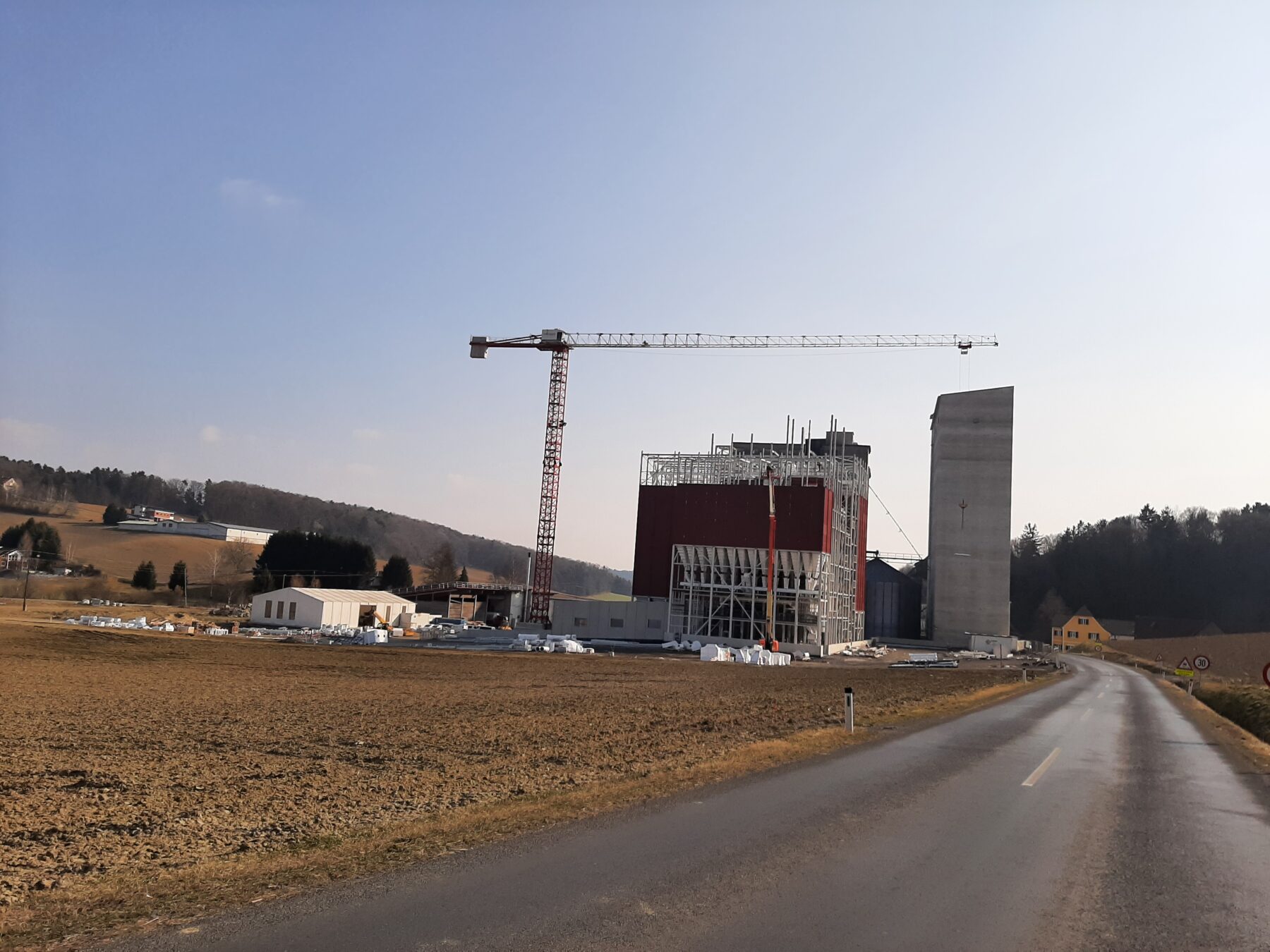Project: Gsellmann Mischfuttererzeugung GmbH
In the spotlight
Unique organic feed factory for Gsellmann Mischfuttererzeugung GmbH in Austria
In August 2021, Ottevanger Milling Engineers began the construction of a new bio-compound feed factory for Gsellmann Mischfuttererzeugung GmbH in Gnas, Austria – with a difference.
While other compound feed producers sometimes opt to redesign their existing installations into bio-compound feed factories, Gsellmann chose to build an entirely new installation – which is unique in Europe.
Like Ottevanger Milling Engineers, Gsellmann is an independent family business with a long history. Founded in 1890 with the construction of a single mill, it has operated as a compound feed factory since 1961. We established our relationship in the early 2000s; initially through the purchase of various equipment for their existing production facility, mainly for the production of monogastric and ruminant feeds.
Followed by their investment in a meal heat treatment line with a capacity of 15 t/h for special poultry feeds in 2018 – Late December 2020 an agreement was reached in for the construction of a specialized bio-compound feed mill with a capacity of 30 t/h.
When the new mill goes operational, it will approx. produce 70% feed for laying hens. A further 20% of production will be dedicated to cattle feed, used to produce organic milk and dairy products. Organic foods account for a large share of human consumption in Austria and the relatively small and specialized farms in the region where Gsellmann is located are ideal for meeting this demand – hence the company’s production is mainly regionally oriented.
Making organic a reality
So, what are the keys to the successful production of bio-compound feed? Firstly, organic raw materials must never be mixed with regular raw materials. In fact, preventing contamination is of the utmost importance. Gsellmann processes organic grains for feed that are grown and harvested in Austria and partly in Hungary – with no pesticides allowed in the cultivation of organic grains like wheat, oats and barley.
As a result, the yield per hectare is lower than for the regular cultivation of these crops. In addition, contaminants such as mycotoxins are more common. The pre-cleaning process at the grain intake therefore needs to be extremely thorough, and meal heat treatment / hygienization – is an essential part of the production process.
This is especially important for poultry feeds to prevent salmonella`s and minimize the use of acids. Practice has shown that heat treatment of mash feed is a very effective way of eliminatating bacteria`s and salmonella`s.
As the main contractor, Ottevanger Milling Engineers has been responsible for the realization of the new factory, which has in turn involved collaboration with various sister companies within the Triott Group: TSC (silos), PTN (including hygienization), IVS (steam and liquid dosing) and Almex (expander) have all played key roles.
In December 2020, the agreement was signed following mutual visits. Against a backdrop of Covid-19, construction hasn’t always been the easiest; while high raw material prices (especially steel), winter conditions and other market conditions have also posed challenges. Despite all this, the project remains on schedule. In early July 2022 the factory should be ready to accept its first intake of bio-grains. Final commissioning is scheduled for October-November 2022.


